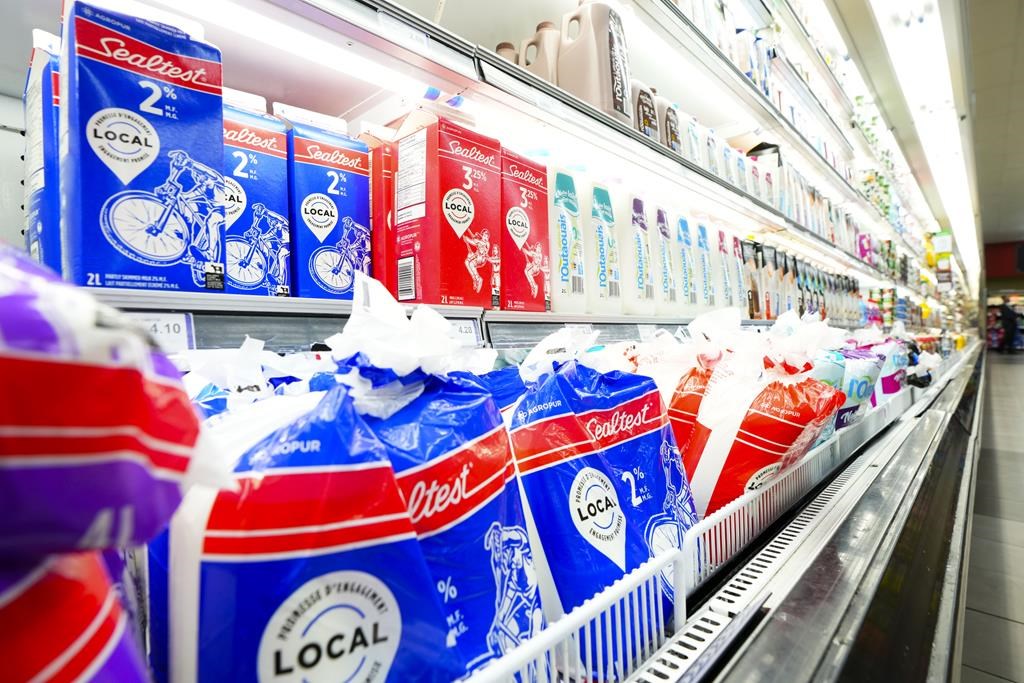Would Canadians be willing to part with ‘best-before’ dates to reduce food waste?

Posted August 25, 2022 6:43 am.
There is a new push to remove the ‘best-before’ dates found on most food packaging, with many arguing that getting rid of the indicators would significantly reduce unnecessary food waste.
Some grocers in Europe have already made the move, with others ready to follow their lead, but would it be accepted in Canada?
A new poll finds most Canadians are against scrapping the dates on packages, even if doing so would help reduce food waste.
According to results of the survey from the Agri-Food Analytics Lab at Dalhousie University, 62 per cent of Canadians are in opposition of removing ‘best-before’ dates in an effort to reduce waste, and two-thirds said they were “strongly opposed.”
Another 11 per cent of respondents said they were unsure, with 27 per cent saying they would support the move.

“The results of the survey open up some rich perspective into Canadian consuming habits,” says Dr. Mark Juhasz, Research Associate at Dalhousie University’s Agri-Food Analytics Lab. “This is a fertile ground for more research, maybe even comparing perceptions of ‘best before’ compared to expiry dates.”
‘Best-before’ dates are not the same as an expiration date, the aim is to help indicate the quality of a product, not the safety. Only five types of food in Canada have actual expiration dates. These include baby formula, meal replacements or supplement bars, meal supplement drinks, formulated liquid diets and foods used in low-energy diets.
Two-thirds of respondents to the poll say they have thrown out unopened food because the ‘best-before’ date had passed. However, more than three-quarters say they have consumed a product even after the date has passed.
Sylvain Charlebois, Senior Director, Agri-Food Analytics Lab at Dalhousie University and co-host of The Food Professor podcast, spoke with the Big Story Podcast
According to the survey, one-quarter of respondents say they rely on ‘best-before’ dates as their primary indicator to determine whether food is safe. Other respondents say they rely on the presence of mold (28 per cent), the smell of the product (20 per cent), and the appearance (17 per cent), to make their determination.
“There is a broad spectrum,” says Juhasz. “It really depends on the sub-category of food, with greater perceived risk of animal-based foods and prepared foods perishability, which can carry greater health threats if the items are going bad.”
When asked what products consumers would be willing to purchase that did not have a best-before date, produce and pre-packaged non-perishable foods came out on top at 66 per cent and 59 per cent respectively. Respondents were most unwilling to purchase meat (21 per cent), seafood (18 per cent), and diary (15 per cent) if there was no date.

The frequency in which people checked dates was also greatly dependent on the food category. Nearly three-quarters of Canadians said they always check the date for dairy products, while only a third say they check for packaged items.
“In light of these results, it is obvious that the food safety culture in Canada is quite strong,” says Dr. Sylvain Charlebois, Director of the Agri-Food Analytics Lab. “Unlike for grocers in Europe, removing ‘best-before’ dates will likely be viewed as an unpopular gesture, at least for now.”
According to the Global Food Security Index, Canada is ranked 1st in the world when it comes to food safety. The Food Sustainability Index also ranks Canada as number one in the world when it comes to “food loss and waste.”








